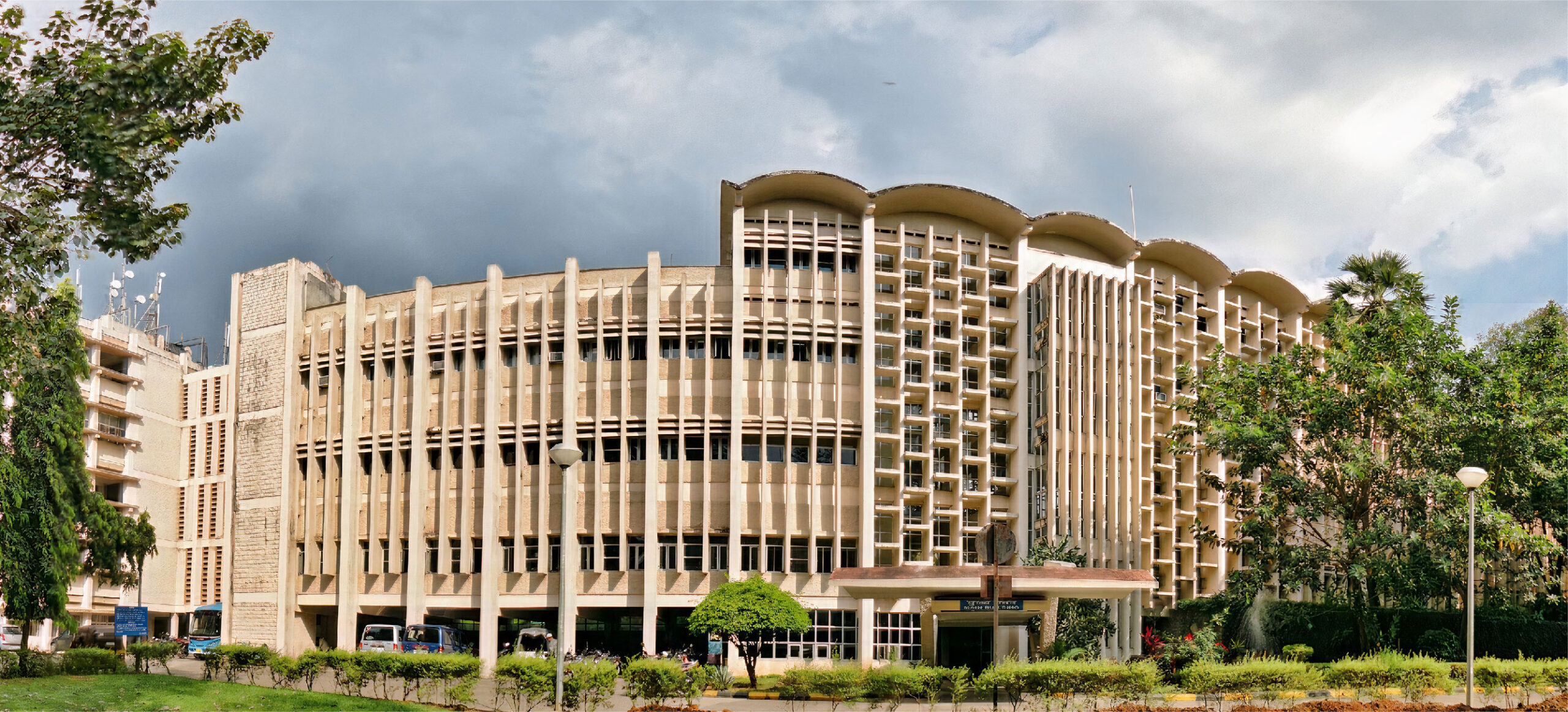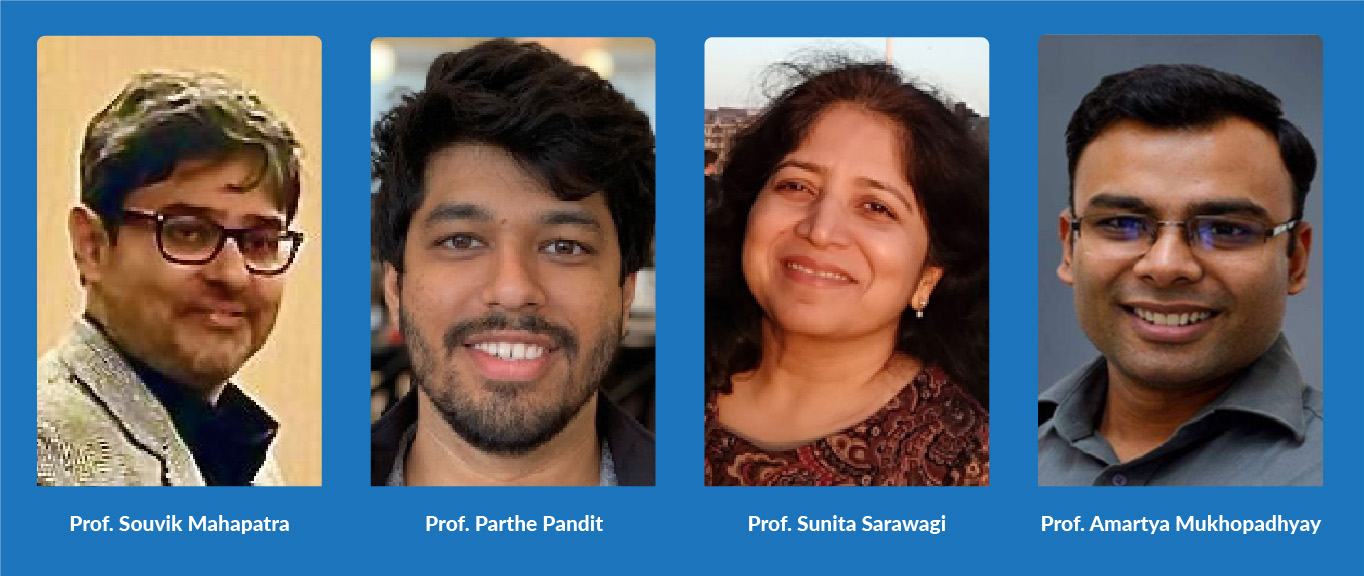Prof. Souvik Mahapatra
Global Semiconductor Leaders Applaud IIT Bombay’s Prof. Souvik Mahapatra and the “Mahapatra Reliability Model”
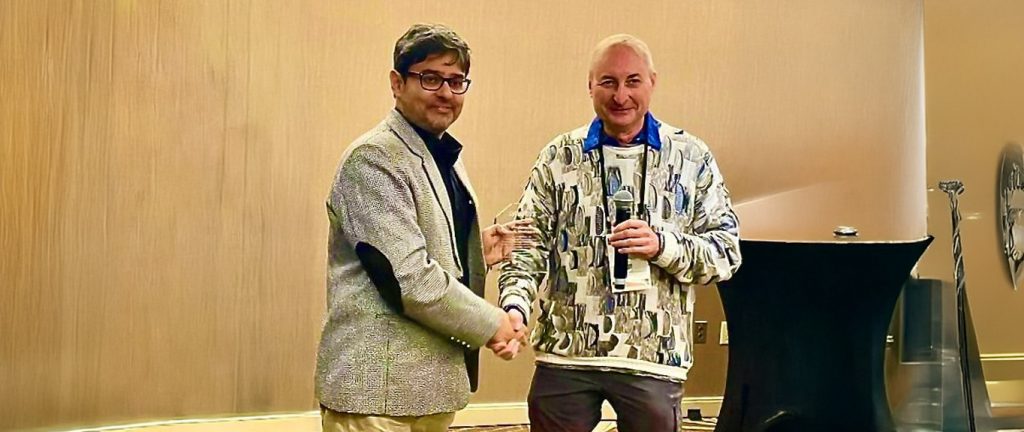
In a significant testament to his pioneering work in semiconductor reliability, Prof. Souvik Mahapatra of IIT Bombay has garnered widespread recognition from leading global semiconductor companies. His work, which has shaped transistor reliability analysis and modelling for over two decades, is now embedded in Synopsys’s Sentaurus Device TCAD software (a key tool in semiconductor development) as the “Mahapatra Reliability Model.” This milestone not only marks a scientific achievement but underscores the industry-wide impact of his research.
Dr. Victor Moroz, Fellow at Synopsys, explained, “Synopsys, a leading provider of TCAD software, has been collaborating with Prof. Mahapatra for the past decade. As a result of this collaboration, a reliability model has been developed and incorporated in Sentaurus Device TCAD (named as ‘Mahapatra Reliability Model’), which is being used by several industries in the logic and memory areas of the semiconductor ecosystem.”
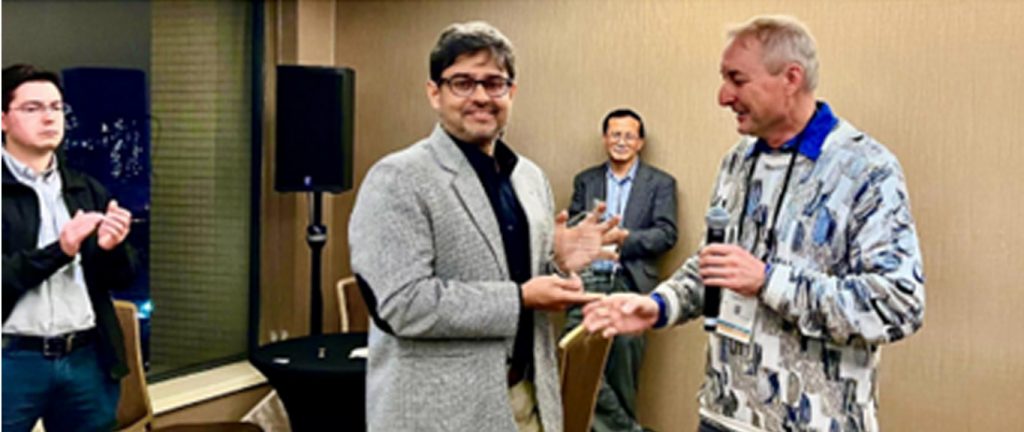
Recognizing his unparalleled contributions, Synopsys presented Prof. Mahapatra with an award during the International Electron Devices Meeting (IEDM) in San Francisco in December 2024. Reflecting on this recognition, Dr. Mukesh Khare, General Manager of IBM Semiconductors and Vice President, Hybrid Cloud Research at IBM, USA, said, “This award is a well-deserved recognition for Prof. Mahapatra, who has been a crucial contributor to advancing semiconductor industry innovation.”
Top industry leaders have hailed Prof. Mahapatra’s contributions.
Dr. Chandra Mouli, Vice President of Device Technology at Micron, USA, praised him, stating, “We have a long and fruitful collaboration with Prof. Mahapatra. He works closely with our technology team as a consultant in the reliability assessment of advanced transistors used in our products. Industry faces several reliability challenges as we continue to push aggressively with technology scaling, requiring us to have a strong focus on understanding transistor wearout and degradation mechanisms, to predictively model the degradation for lifetime assessments. Prof. Mahapatra has a deep interest in understanding practical challenges in technology development and high-volume manufacturing. This combined with his exceptional knowledge in transistor reliability mechanisms makes him unique in the world for such partnership.”
The semiconductor industry’s relentless push for high-performance, energy-efficient chips relies heavily on the reliability of billions of nanosized transistors within each chip. To ensure these transistors perform optimally throughout their lifespan, comprehensive analysis and modelling are critical. Prof. Mahapatra’s work addresses these issues and enables semiconductor manufacturers to anticipate and mitigate performance degradation over time.
Sharing his thoughts, Dr. Khare said, “Over the last several years, IBM has worked closely with Prof. Mahapatra and his students to advance logic technology scaling. Leveraging experimental data from transistors fabricated at IBM’s semiconductor research lab at the Albany NanoTech Complex, Prof. Mahapatra and his team have developed comprehensive reliability models that greatly enhance the accuracy of transistor and circuit ageing projections for advanced technology nodes.”
Prof. Mahapatra’s collaborations span a wide spectrum of semiconductor leaders, including Applied Materials, Intel, and Synopsys. These partnerships have enabled cutting-edge developments in semiconductor fabrication, from optimizing processes to incorporating reliability modelling into TCAD software.
Dr. Satheesh Kuppurao, Group Vice President of Business Development and Growth in the Semiconductor Products Group at Applied Materials, USA, highlighted the long-term impact of his contributions. He said, “Applied Materials, Inc., one of the world’s leading providers of semiconductor chip fabrication equipment, has closely collaborated with IIT Bombay and Prof. Mahapatra for over the past two decades developing, evaluating, and improving materials and processes used in leading-edge logic and memory technologies. Prof. Mahapatra’s expertise and contributions led to a deep understanding of transistor reliability and degradation mechanisms that resulted in several innovative solutions that were developed and deployed by Applied Materials in leading semiconductor fabs across the world.”
Dr. Stephen Ramey, Engineering Manager of the Reliability Group at Intel, USA, acclaimed Prof. Mahapatra’s accomplishment and added, “It is a great pleasure to learn that Prof. Mahapatra has been considered for an award from Synopsys in recognition of contributions to the physical understanding and modelling of reliability mechanisms in advanced logic transistors. The reliability of these transistors continues to be a key consideration during the development of new technologies, especially in the gate-all-around architecture which significantly affects the underlying physics driving reliability phenomena. At Intel, our long-standing collaboration with Prof. Mahapatra has been instrumental in guiding both the understanding of reliability mechanisms as well as finding paths for the process technology to continue Moore’s law scaling.”
Prof. Mahapatra’s efforts have not only enhanced the understanding of semiconductor reliability but also streamlined technology development in an industry where precision and efficiency are paramount. His work continues to inspire advancements in the design, performance, and longevity of the chips powering today’s technological landscape.
This groundbreaking accomplishment by Prof. Souvik Mahapatra underscores the vital role of IIT Bombay in fostering a culture of excellence, innovation, and global impact. The Institute’s unwavering support for its faculty—through access to cutting-edge research facilities, opportunities for global collaborations, and a vibrant academic ecosystem—has been instrumental in enabling scholars like Prof. Mahapatra to excel in their fields. Prof. Mahapatra’s achievements are a testament to IIT Bombay’s vision of blending academic brilliance with real-world impact, paving the way for a future where Indian academia stands at the forefront of global innovation.
Prof. Parthe Pandit
IIT Bombay’s Prof. Parthe Pandit Wins Prestigious AI2050 Early Career Fellowship

Prof. Parthe Pandit, an esteemed faculty member at IIT Bombay and the Thakur Family Chair Assistant Professor at IIT Bombay’s Centre for Machine Intelligence and Data Science (C-MInDS), has been awarded the highly coveted AI2050 Early Career Fellowship by Schmidt Sciences. This recognition places him among a select group of 20 global early-career researchers tasked with addressing the complex challenges of artificial intelligence to ensure it benefits humanity.
The AI2050 Fellowship, established by Schmidt Sciences, invites researchers to imagine a world in 2050 where AI has achieved transformative benefits. By funding groundbreaking projects, the programme aims to overcome AI’s current limitations and align its advancements with societal needs. The Fellows, representing diverse disciplines and institutions, will work on projects ranging from drug discovery in Africa to reducing maternal mortality and developing safer, more efficient AI systems.
As Prof. Pandit joins this prestigious cohort, his AI2050 project seeks to bridge the gap between the mathematical rigor of traditional Kernel Machines (KMs) and the scalable efficiencies of modern Deep Neural Networks (DNNs). DNNs dominate today’s AI landscape but come with significant challenges, including high resource demands and limited interpretability. Prof. Pandit’s research focuses on reviving Kernel Machines (KMs), which were at the forefront of AI before 2012. Unlike DNNs, KMs are rooted in mathematically principled frameworks that emphasize stability, transparency, and simplicity.
Prof. Pandit’s project aims to modernize KMs by designing high-quality kernel functions and scalable training algorithms. By integrating these advancements, he envisions establishing KMs as a viable and sustainable alternative to DNNs in future AI systems.
The announcement by Schmidt Sciences highlighted the critical importance of projects like the one being pursued by Prof. Pandit. Mr. Eric Schmidt, co-chair of the AI2050 program, stated, “Artificial intelligence has the potential to transform our lives for the better, particularly by accelerating scientific progress in profound ways. While the benefits of AI can far outweigh the challenges, realizing this potential requires thoughtful action today.”
Mr. Mark Greaves, executive director of AI2050, emphasized the broader mission of the fellowship, saying, “With the exponential growth in the speed of AI development, the AI2050 community plays a critical role in answering the challenges and seizing the opportunities that AI presents for our world.”
Prof. Pandit’s achievement exemplifies the Institute’s ethos of pushing boundaries and addressing global challenges. IIT Bombay’s robust academic ecosystem, interdisciplinary collaboration, and focus on impactful research continue to empower faculty like Prof. Pandit to excel on the global stage. This accomplishment reinforces the Institute’s reputation as a hub of innovation, inspiring the next generation of researchers to imagine and create a better future through science and technology.
Prof. Sunita Sarawagi
IIT Bombay’s Prof. Sunita Sarawagi Joins EY.ai Global AI Advisory Council

Prof. Sunita Sarawagi, a distinguished faculty member in the Department of Computer Science and Engineering, and the Professor-in-Charge of the Centre for Machine Intelligence and Data Science (C-MInDS) at IIT Bombay has been appointed to the newly formed EY.ai Global AI Advisory Council.
Prof. Sarawagi, renowned for her groundbreaking work in artificial intelligence, machine learning, and data science, joins a prestigious group of AI researchers, entrepreneurs, academics, and policymakers on this global platform.
The EY.ai Global AI Advisory Council has been established to guide EY and its clients in navigating the complexities of the rapidly evolving AI landscape. With a focus on AI development and deployment, client transformation, and addressing global challenges, the council aims to deliver innovative insights while upholding ethical practices.
Mr. Rakesh Kaul Punjabi, Partner and AI Activation Leader at EY India, emphasized the importance of this initiative, saying, “The establishment of the EY.ai Global AI Advisory Council underscores our commitment to leading with innovation and responsibility in the era of AI transformation. At EY, we are not just adapting to the future of AI; we are shaping it to create meaningful impact for our clients, people, and communities.”
Prof. Sunita Sarawagi’s inclusion in the EY.ai Global AI Advisory Council is a testament to IIT Bombay’s commitment to fostering world-class faculty and advancing cutting-edge research. Prof. Sarawagi’s contributions are expected to play a pivotal role in shaping AI-driven innovation at EY, further solidifying her reputation as a leader in the field. As always, IIT Bombay continues to be a hub for innovation, shaping leaders who make a transformative impact globally.
Prof. Amartya Mukhopadhyay
Prof. Amartya Mukhopadhyay Wins the Tata Transformation Prize
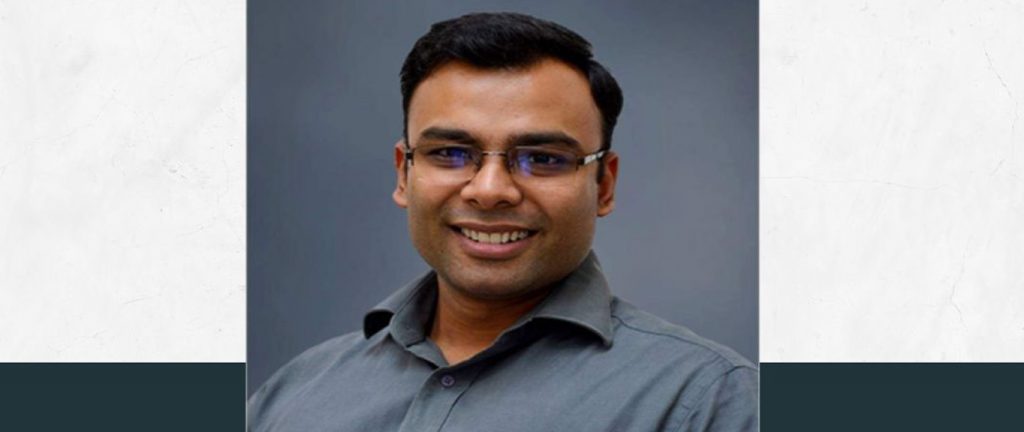
IIT Bombay is proud to announce that Prof. Amartya Mukhopadhyay has been honoured with the Tata Transformation Prize in the ‘Sustainability’ category for his pioneering work on Na-ion batteries. Prof. Mukhopadhyay’s research focuses on the design and development of safe, sustainable, and cost-effective sodium-ion batteries with aqueous-processed electrodes, marking a significant contribution to energy storage technology.
As part of this prestigious recognition, Prof. Mukhopadhyay will receive:
– A research grant of Rs. 2 Crores
– A personalized prize medal
– Lifetime membership to The New York Academy of Sciences
His groundbreaking work on Na-ion batteries, which offer a more affordable and environmentally friendly alternative to lithium-ion batteries, has the potential to reshape energy storage solutions. These batteries not only address India’s challenge of scarce lithium and cobalt resources but also present a greener, more sustainable option for energy storage, particularly for renewable energy applications.
The research, which utilizes water-based processing techniques to reduce costs and environmental impact, holds great promise for scaling up and commercializing sustainable energy storage solutions. Prof. Mukhopadhyay’s efforts are set to reduce India’s dependence on imported materials and contribute significantly to the country’s energy independence.
For more details, click the link here.
Prof. Mukhopadhyay’s achievement highlights IIT Bombay’s commitment to fostering groundbreaking research and innovation. It is a testament to the Institute’s focus on empowering its researchers to address global challenges, particularly in sustainable energy. IIT Bombay congratulates Prof. Mukhopadhyay on this well-deserved honour and looks forward to his continued contributions to the field.

Annual Activity Report 2023-24
View Now View NowEngage with us
We welcome your ideas and suggestions and encourage you to get in touch with us at

